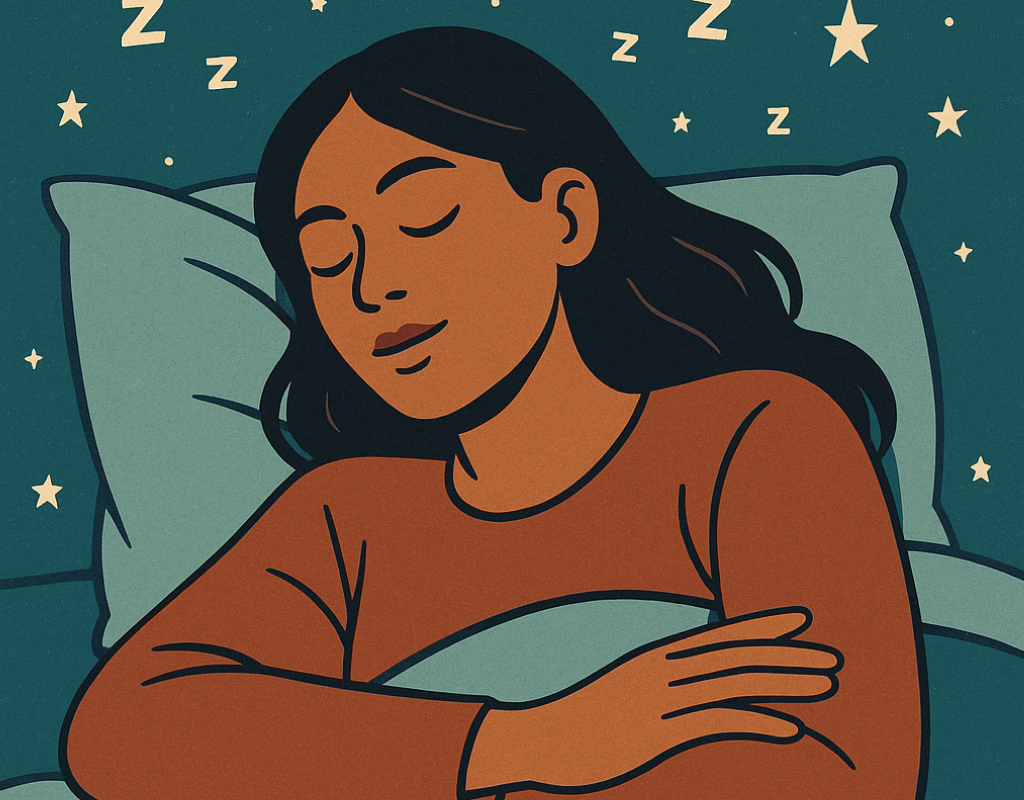SLEEP IS THE NEW SUPERPOWER
THE YOUTH MOVEMENT FOR REST & RHYTHM

In an age dominated by hustle culture, late-night productivity, and digital overload, a quiet revolution is taking place among young people: they are choosing sleep, and proudly so. From university dorms to TikTok feeds, members of Gen Z are embracing rest not as laziness, but as a form of power, wellness, and resistance. The phrase “Sleep is the new superpower” has become a rallying cry for a generation that’s redefining what it means to be successful in a chronically overworked world.
Rewriting the Rules
For decades, the prevailing wisdom was simple: the less you sleep, the more productive you are. Sacrificing sleep for grades, career advancement, or social clout was normalized. But today’s youth are questioning those rules. “I used to feel guilty for getting eight hours,” says Maya Thompson, a 21-year-old college student in Chicago. “Now, I treat sleep like it’s part of my mental health plan. It’s not optional.” And she’s not alone. Online forums, wellness blogs, and social platforms are filled with sleep trackers, bedtime routines, and discussions about circadian rhythms. Digital influencers with millions of followers now post about sleep hygiene, melatonin-free wind-down rituals, and screen-free evenings, sparking what some are calling a “sleep renaissance.”
More Than Self-Care: A Social Movement
But this isn’t just a wellness trend it’s deeply political. As awareness around mental health grows, so does the understanding that rest is a right, not a luxury. Influencers, educators, and activists are tying sleep into larger discussions about inequality, labor, and systemic burnout. “Rest is resistance,” says Tricia Hersey, founder of The Nap Ministry, whose work has resonated deeply with younger audiences. “We live in a grind culture that devalues rest. Choosing to sleep is a way of reclaiming your humanity.” Indeed, the movement draws from the broader push for work-life balance, sustainable lifestyles, and boundaries around technology. Sleep, once the first thing to go during exams or deadlines, is now central to conversations about health equity and long-term well-being.
The Science Behind the Shift
Science supports what this generation already intuits: sleep is critical. Studies consistently show that proper sleep improves memory, emotional regulation, creativity, and even immune function. Chronic sleep deprivation, on the other hand, is linked to depression, anxiety, and a host of physical health issues. Dr. Anjali Kapoor, a neurologist and sleep researcher, notes a noticeable uptick in young patients actively trying to improve their sleep. “This shift is promising,” she says. “They’re realizing that rest is a tool, not a weakness. It enhances performance, mood, and overall life satisfaction.”
Redefining Ambition
The youth-led sleep movement doesn’t reject ambition; it redefines it. Success is no longer measured in burnout, but in balance. Gen Z is increasingly prioritizing holistic health over hustle, knowing that sustained energy and creativity are born from rest, not exhaustion. As one viral post reads: “You can’t pour from an empty cup. So, I’m sleeping, not quitting.” In an always-on world, the most radical thing young people may be doing is simply turning off the lights.
Tips from the Youth Sleep Movement
- Digital Curfews: Power down phones an hour before bed. Blue light disrupts melatonin production.
- Consistent Sleep Schedule: Even on weekends. Your body loves rhythm.
- Mindful Wind-Down: Journaling, light stretching, or herbal teas can signal the brain it’s time to rest.
- No More Sleep Guilt: Remind yourself: Rest is productive. Sleep is strength.

Hands United for Lifelong Aid and
Human
Upliftment Lever Foundation
Since 2012
ALL CONTACTS
-
Registered Office:
1/5 Parel Shivshandesh CHSL., Kasturba Gandhi Nagar, LR Papan Marg, Worli, Mumbai 400018. -
Branches:
Worli, Charni Road, Kalyan, Pune - +91-8082376061 , +91-8369001611
- hulahulgrp@gmail.com
SUPPORT US
If you wish to contribute to our mission, you can make a donation via bank transfer to the following account:
Bank Details
Name: HULAHUL Foundation
Bank: IDBI Bank
Account Number: 0026104000273299
IFSC Code: IBKL0000026
Branch: Prabhadevi


Leave a Reply